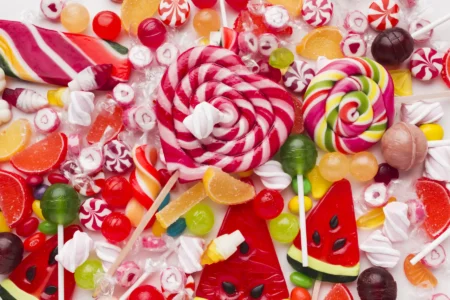 You’ve had a long day, deadlines are piling up, emotions are running high — and suddenly, all you can think about is chocolate, cookies, or that last slice of cake. Sound familiar? You’re not alone. Many people instinctively reach for sweets during stressful moments. But why does this happen?
You’ve had a long day, deadlines are piling up, emotions are running high — and suddenly, all you can think about is chocolate, cookies, or that last slice of cake. Sound familiar? You’re not alone. Many people instinctively reach for sweets during stressful moments. But why does this happen?
It’s not just a lack of willpower. There are real biological and emotional reasons behind sugar cravings in times of stress.
The Brain’s Built-In Reward System
Stress activates the brain’s fight-or-flight response, raising levels of cortisol, the primary stress hormone. This puts your body on alert — ready to deal with a perceived threat.
But sugar, especially high-sugar processed foods, triggers a surge of dopamine, the brain’s “feel-good” chemical. This creates a short-term sense of relief or even pleasure — temporarily balancing out the discomfort of stress.
In short: your brain sees sugar as a fast way to feel better.
Comfort, Memory, and Habit
Sugar also taps into emotional comfort. Many of us associate sweet foods with childhood, safety, or reward. If you were given a cookie after a tough day as a kid, your brain made a connection: sweet food equals comfort.
Later in life, when stress hits, that wiring still exists. Your body doesn’t just want food — it wants comfort, and sugar has become the shortcut.
The Blood Sugar Roller Coaster
Here’s the catch: sugar gives a quick energy boost, but it’s often followed by a crash. That dip in blood sugar can lead to irritability, fatigue, and — ironically — even more cravings.
Over time, this creates a cycle: stress → sugar → crash → more stress or hunger → more sugar.
Are All Cravings Emotional?
Not always. If you’re skipping meals, under-sleeping, or overworking, your body may be genuinely low on fuel — and sugar is the fastest-burning source of energy.
But when cravings hit suddenly, especially after an emotional trigger or mental exhaustion, it’s likely driven more by stress than hunger.
How to Break the Pattern
You don’t have to give up sweets entirely — but understanding the why behind the craving helps you make better choices:
- Pause and check in: Am I actually hungry, or just stressed?
- Find other comfort tools: Go for a walk, take deep breaths, or talk to someone — anything that lowers cortisol without sugar.
- Eat real meals: Skipping proper meals makes cravings worse.
- Keep better options nearby: Fruits, nuts, or dark chocolate offer balance without a full sugar spike.
Final Thought
Craving sugar during stress is a human response — not a failure. Your brain is trying to protect and soothe you in the fastest way it knows how. The key is learning to recognize the pattern and respond with care, not shame.
Sometimes a sweet treat is fine. But long-term, building healthier ways to manage stress helps your mind and body feel better — without riding the sugar roller coaster.
Picture Credit: Freepik
